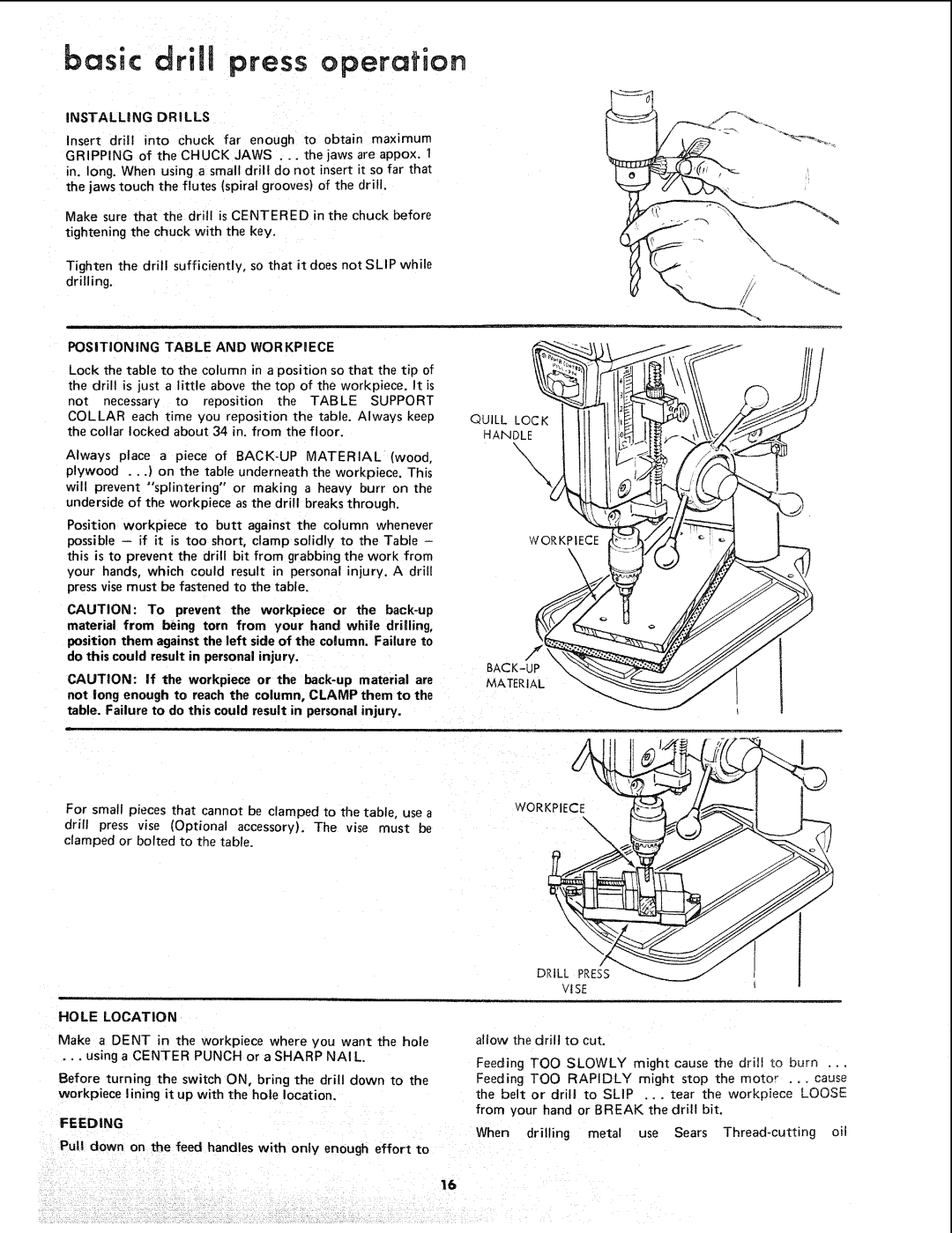
basic drill press operation
INSTALLING DRILLS
Insert drill into chuck far enough to obtain maximum GRIPPING of the CHUCK JAWS ... the jaws are appox. 1
in. long. When using a small drill do not insert it so far that the jaws touch the flutes (spiral grooves) of the drill.
Make sure that the drill is CENTERED in the chuck before tightening the chuck with the key.
Tighten the drill sufficiently, so that it does not SLIP while drilling.
POSITIONING TABLE AND WORKPIECE
Lock the table to the column in a position so that the tip of the drill is just a little above the top of the workpiece. It is
not necessary to reposition the TABLE SUPPORT COLLAR each time you reposition the table. Always keep the collar locked about 34 in. from the floor.
Always place a piece of
plywood ...) on the table underneath the workpiece. This
will prevent "splintering" or making a heavy burr on the underside of the workpiece as the drill breaks through.
Position workpiece to butt against the column whenever possible - if it is too short, clamp solidly to the Table - this is to prevent the drill bit from grabbing the work from your hands, which could result in personal injury. A drill press vise must be fastened to the table.
CAUTION: To prevent the workpiece or the
CAUTION: If the workpiece or the
For small pieces that cannot be clamped to the table, use a
drill press vise (Optional accessory), The vise must be clamped or bolted to the table.
HOLE LOCATION
Make a DENT in the workpiece where you want the hole
... using a CENTER PUNCH or a SHARP NAI L.
Before turning the switch ON, bring the drill down to the workpiece lining it up with the hole location.
FEEDING
Pull down on the feed handles with only enough effort to
QUILLHANLO _
VCORKPIECE
WORKPIECE
"\
\
DRILL PRESS
VISE
allow the drill to cut.
Feeding TOO SLOWLY might cause the drill to burn ..,
Feeding TOO RAPIDLY might stop the motor .., cause
the belt or drill to SLIP ... tear the workpiece LOOSE from your hand or BREAK the drill bit.
When drilling metal use Sears
16
